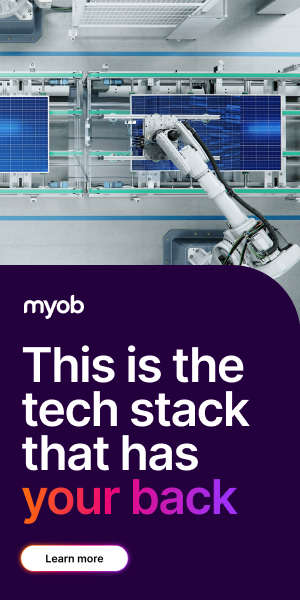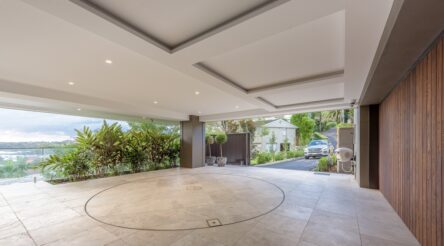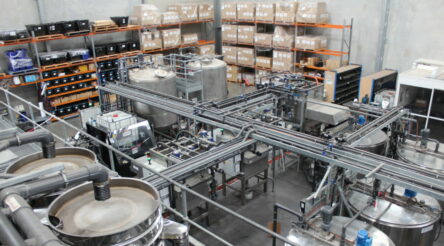Small recycler develops answer to behind-the-scenes powder problem
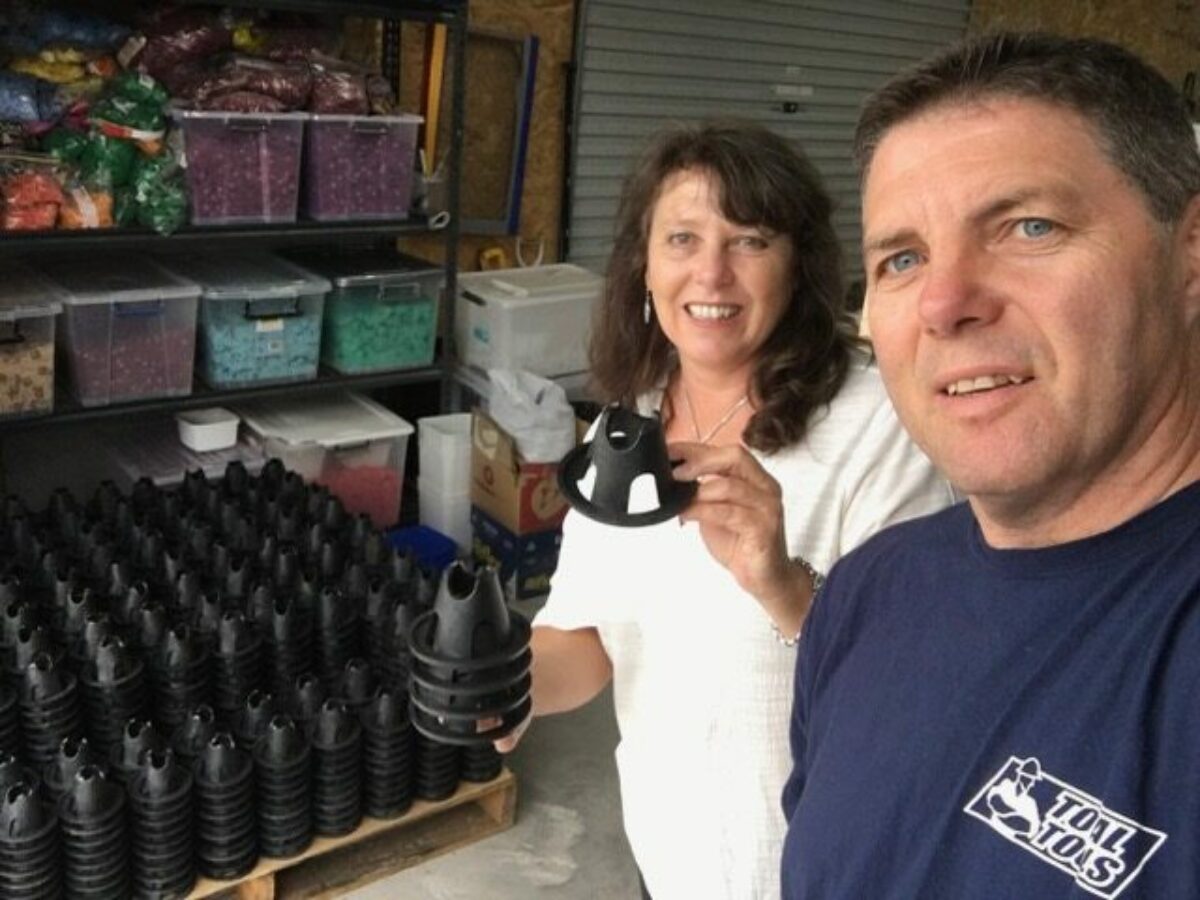
As our journey to uncover Australia’s 50 Most Innovative Manufacturers gathers pace, we hear from a small business from Robe in South Australia that’s developed a world-first polymer using a difficult industrial waste stream. Brent Balinski spoke to Transmutation founder Brad Scott about the career shift that brought him to plastic recycling.
Brad Scott uses the word “serendipity” to describe the progress of his plastic recycling business. In a few years it has gone from a hobby to developing what he says is a world-first solution to a significant industrial waste problem.
The most recent chapter came about following a chance visit by the then-operations manager of Dulux Powder Coating ANZ, who walked into the factory shop at Scott’s Robe, South Australia property.
“We connect with people. And it’s either word of mouth from that connection or the actual people themselves who are walking through our shop, and there’s no better way to connect with people than face to face,” Scott tells @AuManufacturing.
“And I think they’re a bit off-guard as well, because they’re on holidays and they’re enjoying themselves. So it’s been a lot easier for me with those connections than trying to knock down a corporate door.”
Scott says powder coating is a problem estimated to represent about 800,000 tonnes a year of waste going into landfill, and despite Dulux’s best efforts it hadn’t identified an answer.
Do you think you belong on @AuManufacturing’s list of Australia’s 50 Most Innovative Manufacturers? Apply to be recognised in this exclusive group here.
“It’s sort of an industrial problem that sits behind the curtain to a certain extent. Because powder-coating in its application is quite environmentally friendly because it doesn’t have the side effects that wet paint does,” he adds.
“But behind the scenes where they’re making it there is a bit of industrial waste caused.”
Transmutation has developed a recipe (other ingredients include silage wrap and bailing twine) and process for PostPrime. A patent application has been made.
The polymer is initially being used in bar chairs, which are used to hold rebar and mesh in place as concrete is poured.
Why bar chairs?
“Because they’re ubiquitous. There’s so many of them out there, and I’ve always got an eye on a market. Because with the circular economy and trying to be in the circular economy as a business you’ve got to sell something,” shares Scott.
“Too many businesses have failed in this sector because they can’t sell… And they’re making something to try and push into a market that the market doesn’t want. Or they’re making something that’s already in the market and can be made for massively cheaper somewhere else.”
 He says the company is close to a major order of the product, and has set itself up – with the right supplier network and a structure enabling it to grow from a small to middle-sized business – so it is able to meet demand.
He says the company is close to a major order of the product, and has set itself up – with the right supplier network and a structure enabling it to grow from a small to middle-sized business – so it is able to meet demand.
Scott came to manufacturing and recycling well into his career, which was focussed on logistics and project management until the kids moved out and he and wife Narelle decided on a lifestyle change.
They sold the family home in Queensland and hit the road, and after 18 months of travelling around Australia stopped at Robe, on the Limestone Coast.
“And then my wife, who wanted to get on the road, also wanted to get off the road,” Scott explains.
“The deal that my wife made me to get off the road – because I was pretty keen to stay on the road – was if we stopped she would go and get a fulltime job and support us. And I would get an empty shed and figure something out.”
That something – after getting into Precious Plastic, a movement based on open sourcing recycling machinery designs – became tinkering and plastic recycling.
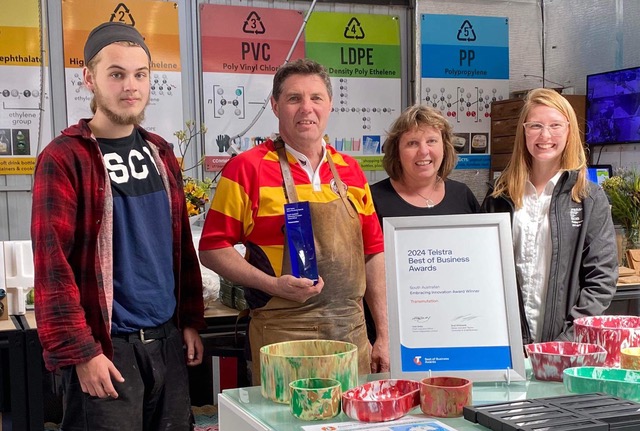
A chemistry degree was an advantage as Scott ploughed into experiments, focussing on feedstocks that bigger recyclers had overlooked, such as styrofoam and breadtags.
Nowadays, its products are sold through Country Road, Airport and Dulux Trade outlets, and its progress has seen it qualify for the national Telstra Best of Business Awards next month.
As for a personal understanding of innovation, Scott says being novel and having utility are essential. As with the circular economy, if there’s no customer, then the job’s not being done properly.
“You can come up with something that’s new and different, but if no-one wants to use it or buy it or whatever then it’s a good idea before it’s time or it’s a good idea after it’s time or whatever it is,” he says.
“But it’s not to me an innovation that’s going to stick. So I’ve always got an eye on – it’s got to be useful in the market and serve some sort of purpose going forward.”
In this innovation of @AuManufacturing Conversations, Scott tells us about the serendipities that have taken Transmutation to where it is now, developing PostPrime, the growing importance of stewardship, and more.
Pictures: supplied
Episode guide
0:54 – A manufacturer, recycler and – at heart – an R&D business.
1:52 – How a lifestyle shift moved Scott from Queensland to South Australia and led to a new business.
3:10 – Inspiration from the Precious Plastic open source hardware-building project.
4:17 – Getting back to chemistry.
5:08 – Tinkering with machinery and different types of collected plastics. Finding polystyrene as a niche.
7:04 – Linking up with Country Road, with things snowballing after a small story on the ABC.
8:48 – A serendipitous meeting at “the magic shop” with Graham Rowe from Dulux Powders.
9:46 – The importance of Rowe’s advocacy inside Dulux.
11:10 – The scale of the problem with waste from powder coating and the difficulties associated with it.
14:02 – The PostPrime material and its first application in bar chairs for concrete pouring, plus some thoughts on the importance of identifying market need for a recycled product.
16:35 – Patenting what they believe is a world first and some further considerations in designing the product.
17:52 – Getting investment, linking with partners, and preparing to scale.
19:20 – A little more on structuring themselves to scale up. Starting the Micro Recyclers Association and supplying them with resins.
20:54 – Recomposition and retail. “If you don’t sell it, it’s not a circular economy.”
22:00 – Some thoughts on defining innovation. Being novel and having utility.
23:30 – The importance of stewardship needs more attention. Some comments on how to design for circularity.
Australia’s 50 Most Innovative Manufacturers is an annual campaign by @AuManufacturing. It has been made possible through the generous support of MYOB, CSIRO, the NSW government’s Advanced Manufacturing Research Facility, and the Commonwealth Bank. Be sure to check back at this website for regular updates, including profiles of nominees and other information.

Further reading
We are trying to identify Australia’s 50 most innovative manufacturers. Nominate now
REDcycle’s collapse is more proof that plastic recycling is a broken system
Sending a computer-designed “Pac-Man” army into the war on waste
Plastics recyclers need to emphasise value rather than cost
Celebrating Australian Made – recycled plastics are a new frontier for innovation
@aumanufacturing Sections
Analysis and Commentary Awards Defence Manufacturing News Podcast Technology Videos






